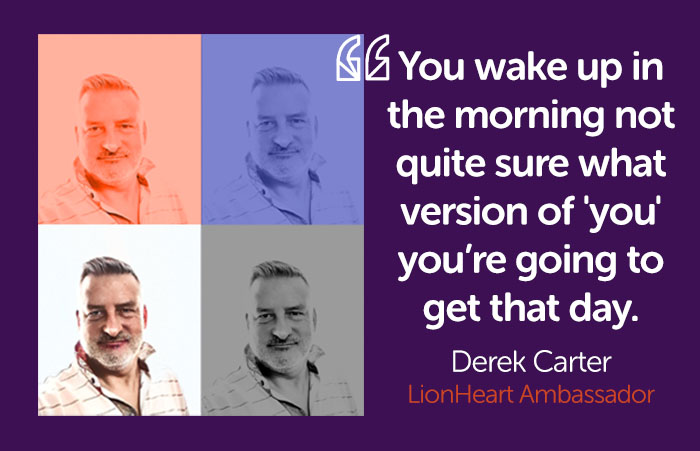Living with an invisible illness

One of the hardest things about having an illness that's 'invisible' is that it can sometimes be difficult to explain what it is that you're feeling and how that impacts your day to day life. It can be even harder to wrap your head around it if your symptoms or the severity of your symptoms can change week by week, or even day by day.
That is the reality for a lot of people who live with long-term health conditions: you wake up in the morning and you're not quite sure what version of 'you' you're going to get that day, which can make planning work or social activities quite hard.
When I caught Covid in July 2022 at the same time as my wife, I had no reason to suspect it would have a long-lasting effect on my mental and physical health. I tested strongly positive for the whole 14 days but it wasn't until around week 3 or 4, when we realised that my wife was almost back to normal, bar a slight cough, but I just wasn't shaking the illness off.
Whether it was the temperature or the sweating, the persistent muscle aches and breathlessness, or the fatigue and brain fog, the symptoms just weren't leaving me.
I went to my GP and was subsequently referred to the hospital's long Covid clinics where they've been tracking my post-viral symptoms with blood tests and chest Xrays and trying to learn more about the effects of these complications on a variety of patients.
Several months on and I still live with pain and fatigue, brain fog, and my mobility has been very restricted. The best way I can describe it is that you get through the day and your battery wears down, like a mobile phone. You close down some apps and try and recharge with your night's sleep, but instead of getting back to 100% or even 90%, you're struggling to get back to 15 or 20%, so you're always trying to find ways to conserve that energy.
"It can be hard to admit you're not firing on all cylinders."
It can be hard to accept you can't do the things you used to be able to do physically. But perhaps even harder is the cognitive side effects and the mental impact, so you find yourself shying away from people and social situations because your conversation or your thought process isn't as quick as it used to be. You don't make plans to go to the restaurant or the concert because you don't know how tired you'll feel or how much pain you'll be in. Spur of the moment is easier if you're having a better day, but it can affect your relationships, your family and friends.
With physical pain, you can learn to adapt to that pain threshold and be realistic as to what you can and can't do. But the mental side of things of adapting to a different way of living, that's the difficult one, and that's what took me slightly by surprise in respect of how much of an effect that would have on me.
You do get days where you feel really low. Like if you have a broken arm, you kind of have an idea of the healing process, it's like a linear journey, but the nature of some illnesses are that you just don't have a road map. So you'll wonder when - or if - you'll feel like yourself again. All you can do is be aware of that and try to push yourself through those low periods.
It can be hard to admit to other people - and yourself, sometimes - that you are not firing on all cylinders. But my message would be very much what I always say about looking after your mental health and that is try to be open with the people around you; tap into the support that is there to help you and talk to other people in a similar position too, it really helps.
I think, as a man, you feel like you have to sort of defend the man cave and look after everybody within it - but you can't do that if you aren't right yourself. It's one of the reasons I am taking part in LionHeart's Talking Men's Health online discussion, because I think it's important that men do talk about physical and mental health and be open to accepting support for themselves.
Derek Carter MRICS is an investment surveyor with extensive UK and international experience. He is one of LionHeart's mental health ambassadors and has previously written about his experiences of stress in order to promote wider awareness among his fellow surveyors, and is among the panel for LionHeart's first online Talking Men's Health Month webinar.
Find out more
Every year LionHeart supports surveyors and their partners who are living with life-changing or long-term health problems or disability. Click here to find out more


